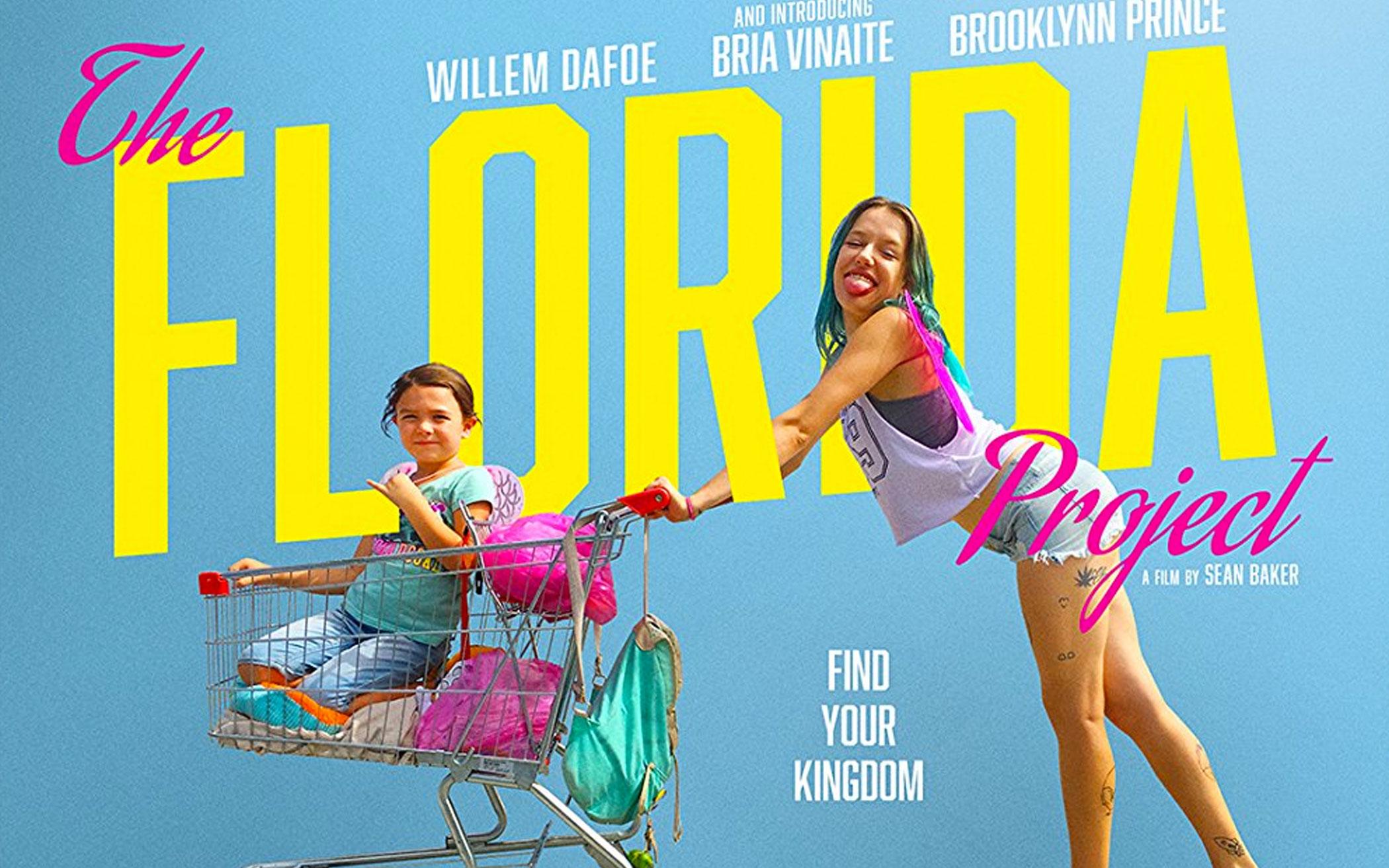Moonee is 6 years old and lives in a cheap hotel in the Orlando area. But this is no Eloise-in-the-Plaza-Hotel fantasy; Moonee’s young single mother, Halley, is doing her best to feed her daughter and make sure they have shelter. The grim reality is that there isn’t much she can do.
Halley (Bria Vinaite) is a feisty, resourceful, and desperate woman who mostly has to choose between bad and terrible choices. She does not react to her situation as we might think she should: she is hard, foul-mouthed, and sometimes turns mean even to those closest to her. Vinaite’s naturalistic performance is hard to watch—you want things to get better for her and you want to shake her at the same time.
In a way, the viewer’s avatar in the film is Bobby, the hotel manager played by Willem Dafoe. Bobby cares about the odd menagerie of people who are staying at his hotel. He wants the best for them, and he loves the children. He is also the one who has to enforce the rules, making sure tenants don’t establish residency by moving them out of their rooms for a night once a month. He watches Halley falling deeper into desperation but can’t catch her. He can be kind, and he can speak honestly, but he can’t fix people’s problems. In fact, he’s having trouble with his own family relationships.
Moonee, on the other hand, seems blithely unaware of how her life matches up to others. She meanders in her own world of imagination, making up her own fun and creating excitement for herself. She’s also learning her own version of resourcefulness. She knows how to get free ice cream from strangers. Halley takes her on a long walk to see the Disney fireworks for her birthday; Moonee takes her friend on a “safari” to see cows. Moonee also pushes her friends to do things they know they shouldn’t do. She is oblivious to some of the dangers around her. The movie demonstrates that the margin for error is slim; these kids and their families are living on the edge, and it will take very little to push them over.
Against the backdrop of the glowing and antiseptic Disney World, every ragged edge of Moonee’s gritty life at the Magic Castle is on display. When a wealthy couple are accidentally booked at this hotel, the wife only needs a quick glance before she announces she can’t stay there. Moonee looks on, knowing that going elsewhere is not an option for her.
The church makes one appearance as the bearers of food from a food truck that makes regular stops at the hotel. They are friendly and smiling, but not friendly enough to really engage the people they are helping. Moonee knows how to ask for extra, and she gets it, but she doesn’t get anything more. The drop-in do-gooders have no idea what else she really needs.
Contrary to the movie’s trailer, this is not a feel-good film. It is a deeper look at what it is like to live in poverty with little hope for something better. It doesn’t look away from the darkness. Children are growing up in poverty all around the world, including here on our own continent. The Florida Project is a window into that life. Characters aren’t portrayed as gold-hearted saints or black-hearted criminals. They are real, complex individuals who each react differently to their circumstances, and the film never condescends to them.
The church can take notes on that, like Shawn Sikkema has done in Denver. Rather than swooping in to save the sinners and throw bread to the hungry before fleeing back to our magic kingdom, we need to live alongside of our neighbors, understanding that, like Bobby, we are just as broken as any of them. The hope we bring does not lie in ourselves. On disc now. (A24)
About the Author
Kristy Quist is Tuned In editor for The Banner and a member of Neland Ave. CRC in Grand Rapids, Mich.

